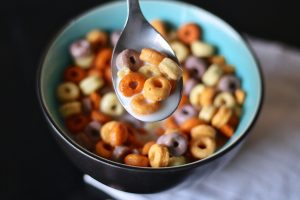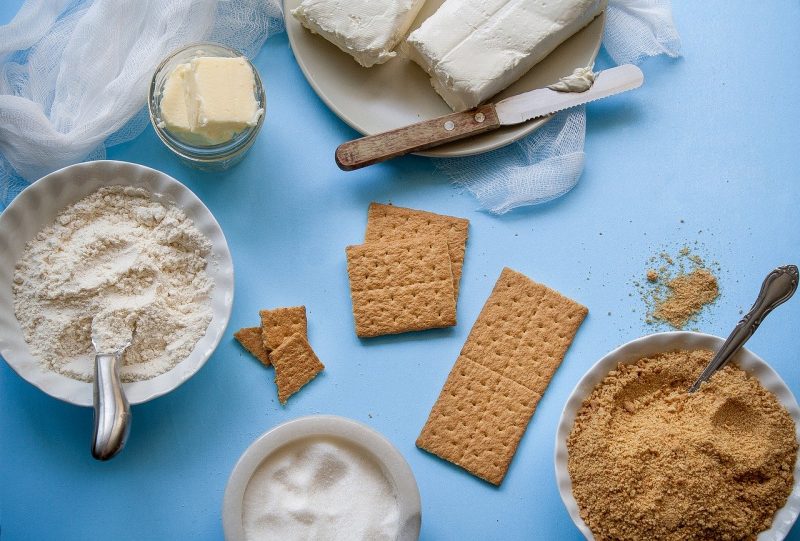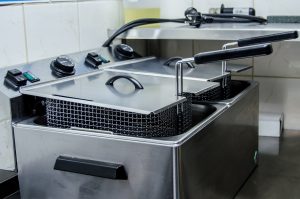Ali Walsh gets to the bottom of some of the myths and truths from living on a gluten-free diet…
Ali Walsh explains the 15 myths about gluten-free diets and where the truth lies…
Recently I went to a reflexologist who said she could rid me of my coeliac disease. Then she casually mentioned she could cure cancer. Seriously.
Slightly horrified, I asked for my money back and drove home feeling very despondent. I thought people knew better than to make such wild and reckless claims?
But then I went online. Pinterest was covered in complete rubbish about eating gluten-free. ‘Don’t drink vodka!’ read one. ‘It’s made from grain.’ I stared dumbfounded. I thought it was common knowledge vodka was safe on a gluten-free diet.
It got worse.
More and more so-called experts were sharing information that was, at best, incorrect and, at worst, downright dangerous.
Becky Sheeran’s well documented Twitter experience at Wetherspoons is a case in point. After eating their listed gluten-free halloumi fries and getting ill, Becky was told the fries had been cooked in the same oil as battered vegetables.
When she protested, Wetherspoon’s claimed they’d done nothing wrong. She found another coeliac, Tori Massey, had been given a similar response. Furthermore, she’d been told, “Due to the high temperature of the fryer this destroys any residual gluten from other products cooked in the fryer.”
Wetherspoons were reportedly investigated by Trading Standards, but the resulting testing showed they complied with regulations. But Coeliac UK responded that “analysis of gluten in such products can give inaccurate results”.

Wetherspoons has since updated its allergens folder with the following statement: “We cannot fully guarantee any food will be completely free from any allergens in this guide.” So what’s the point of calling it an allergen folder?
It got me thinking: if misleading information is so readily available at the touch of a mobile, what we really need is to tackle these people head-on with some hard and fast facts. So here’s something that’s been properly researched for you to pop on the fridge or mail to someone who needs it.
(N.B. My top myth-busting points are aimed at those with coeliac disease or any condition that means they can’t ingest more than 20 parts per million of gluten. However, as with all myths, there’s sometimes a grain of truth (GOT), and that’s underneath some of my answers.)
Myths about gluten-free diets
Myth #1 Hot oil ‘kills off gluten’
If only it could. Ignorant people may try and tell you this, but it’s an easy myth to bust: if high temperatures really did kill off gluten then we’d all be able to eat doughnuts.
Myth #2 Whisky & vodka aren’t gluten-free because they come from grain
Coeliac UK makes it abundantly clear that “even when a cereal that contains gluten is used as an ingredient, all spirits are distilled during the manufacturing process and this process removes any trace of gluten. Therefore, all spirit drinks (including malt whisky made from barley) are safe for people with coeliac disease.”
Myth #3 You’ll need gluten-free shampoo and bath oil
You need to ingest gluten if you’re coeliac, so using it on your body is considered okay. GOT: Small children sometimes drink their bathwater so bear this in mind when purchasing toiletries.
Myth #4 Everything in the free-from aisle is gluten-free
No, or it’d be called the ‘Gluten-Free Aisle’. Check every product before you buy it, even if you’ve bought it before (ingredients and suppliers can change).
Myth #5 You can cure coeliac disease
Currently, there is no proven cure for coeliac disease except by following a strict gluten-free diet. Both the NHS and Coeliac UK give stern warnings about the long-term health implications for coeliacs eating gluten, including osteoporosis, pregnancy-related complications and (in rare cases) small bowel cancer.
GOT: The Vienna University of Technology claims it’s making a pill to alleviate symptoms of coeliac disease, which could be available as soon as 2021. However, to be accessible to us in the UK, it’ll need a licence from the MHRA or EMA.

Myth #6 You can outgrow coeliac disease
Sadly, coeliac disease is an autoimmune condition, not an allergy, and this is often where the confusion lies. Sometimes children have allergic reactions to foods which later disappear. This is not the case with coeliac disease.
Myth #7 Gluten is a listed allergen
Slightly awkwardly-named, the top 14 allergens include ‘cereals containing gluten’ as one of their listed allergens, not gluten specifically. This means people with other grain-related issues (such as wheat allergies) will also know which foods to avoid.
Myth #8 Coeliac disease is new
Coeliac disease has been around for a very long time indeed. The ancient Greeks thought the ‘seed of an unripe grape’ might alleviate symptoms, and a banana diet was cultivated in the 1920s by Dr Sidney Haas, who was confident eating 4-8 bananas a day would solve the problem (please don’t try this, even if you adore bananas).
GOT: More diagnoses are made these days thanks, in part, to a greater understanding among the medical profession and considerable effort from Coeliac UK to promote awareness. This may lead to people believing more people are coeliac, when in fact there are simply fewer people undiagnosed.
Myth #9 Coeliac disease is the only reason to avoid gluten
There are other medical reasons to avoid gluten that don’t involve faddy dieting or celebrity-endorsed promotions. These include Dermatitis Herpetiformis and NCGS (Non-Coeliac Gluten Sensitivity).
Myth #10 A gluten-free diet is healthier
Not since the free-from aisle was invented, it isn’t. At least, not if you substitute like-for-like foods to replicate a typical British diet of toast for breakfast, sandwiches for lunch and pasta for tea.
GOT: A gluten-free diet can be healthier if you’ve changed to cooking your meals from scratch, where before you were having convenience foods and takeaways.

Myth #11 You’ll lose weight on a gluten-free diet
Many coeliacs actually gain weight, especially if they’ve been malnourished while eating gluten.
GOT: You can lose weight if you now have to avoid pints at the pub, the office biscuit barrel and birthday cakes at parties. Over time, small changes can have a big effect.
Myth #12 If it’s got ‘wheat’ in the name, it contains gluten
Both buckwheat and wheatgrass are completely gluten-free, so if you see them on a gf menu, don’t immediately freak out!
Myth #13 Wheat-free means gluten-free
Gluten is present in barley and rye as well as wheat, which is why when food is wheat-free it’s not always gluten-free.
Myth #14 A gluten-free menu is safe for coeliacs
It should be (according to the law), but there are still places serving cross-contaminated products on a gluten-free menu. If you’re unsure, ask your waiter about their cooking and serving procedures.
Myth #15 You can’t get enough variety on a gluten-free diet
There are plenty of nutritious gluten-free alternatives to wheat, barley and rye. These include quinoa, sweet potatoes, brown rice, lentils, chickpeas, corn, buckwheat and more.

The truth
Truth #1 Eating gluten causes fatigue
If you’re coeliac and you’re eating gluten then yes, this can be one of the side-effects.
Truth #2 Food that contains wheat but is certified gluten-free is safe to eat
When the gluten is removed from wheat, it’s safe for coeliacs. This is why you sometimes see wheat as an ingredient in a gluten-free product. But always be cautious: if you’re unsure about a packaged product, double-check with the manufacturers or Coeliac UK before eating it.
Truth #3 You mustn’t share the same equipment
Even if you don’t feel any effects after eating bread that’s been in the same toaster as normal bread, it doesn’t mean it’s safe. Some coeliacs have silent symptoms, which means they’re at risk from long-term health implications, but don’t get immediate physical indicators like vomiting and diarrhoea. Always make sure you keep your own food separate, so no sharing the butter knife!
Still got questions? You can trust Coeliac UK for advice. They have a dietitian on Thursdays between 11 am -12 noon for an online live chat on Twitter, or you can go to their website at www.coeliac.org.uk to see FAQs. Join as a member and you’ll receive a free award-winning food checker app you can use with your mobile phone.
More advice

